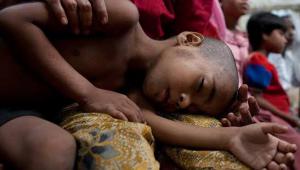Spending on health is growing faster than the rest of the global economy, accounting for 10% of GDP globally, the organisation said in a report on public health expenditure on Wednesday.
But more than 35% of health spending comes from out-of-pocket payments, which is pushing hundreds of millions of people into extreme poverty each year, the report warned.
Governments cover on average just over half (51%) of a country’s health spending.
“Increased domestic spending is essential for achieving universal health coverage and the health-related Sustainable Development Goals,” Tedros Adhanom Ghebreyesus, WHO director general, said.
“But health spending is not a cost, it’s an investment in poverty reduction, jobs, productivity, inclusive economic growth, and healthier, safer, fairer societies.”
The health spending boost is particularly noticeable in low- and middle-income countries, where health spending is growing on average 6% annually, compared with just 4% in high-income countries, the report said.
The report added that in middle-income countries, government health spending has doubled since 2000. On average, governments spend $60 per person on health in lower-middle income countries and close to $270 per person in upper-middle income countries.
The more public money is tapped into health, the less likely people are to fall into poverty from seeking health services.
All 194 member countries of WHO recognised the importance of providing primary health care when they adopted the Declaration of Astana.
Agnes Soucat, director for health systems, governance and financing at WHO, said: “Now they need to act on that declaration and prioritise spending on quality healthcare in the community.
“Health is a human right and all countries need to prioritise efficient, cost-effective primary health care as the path to achieving universal health coverage and the SDGs,” she said.







